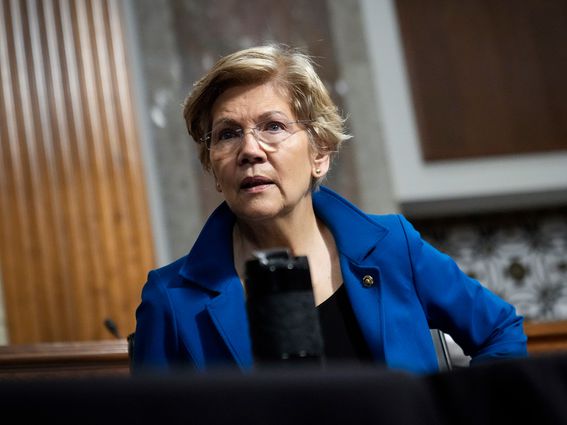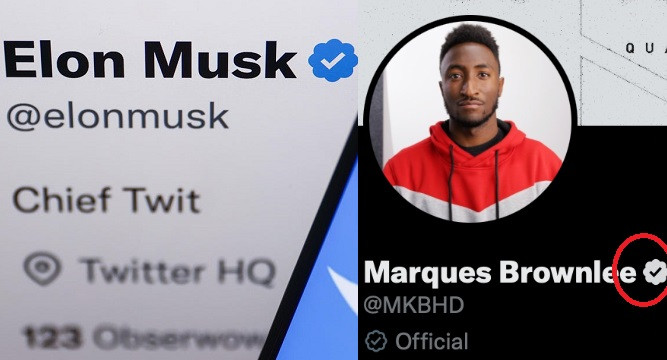Bitcoin Favored in Human Trafficking, Child Exploitation: FinCEN Report
A few years ago, bitcoin {{BTC}} became a popular means to conduct illegal transactions to support a booming global business in the smuggling and exploitation of people, according to an analysis released Tuesday by the U.S. Department of the Treasury.
How the Crypto Industry Responded to FinCEN’s Proposed Mixer Rule
Last October, the Financial Crimes Enforcement Network proposed implementing a new regulatory regime for crypto mixing services that would treat the entire class of privacy tools as money laundering threats and force new recordkeeping rules on U.S. people or entities that use them. The industry had a chance to weigh in. Here’s the gist of their responses.
Binance CEO Disputes JPMorgan Chief’s Critique Of Crypto
Richard Teng, the Chief Executive Officer (CEO) of the world’s largest crypto exchange Binance challenged JPMorgan Chase’s CEO Jamie Dimon’s stance on cryptocurrencies.
Binance CEO Disagrees With Jamie Dimon
The Binance CEO recently defended cryptocurrencies by opposing the anti-crypto narrative promoted by the JPMorgan CEO in a hearing held on Wednesday. Teng took to X (formerly Twitter) to share his displeasure with Dimon’s narrative against crypto.
The JPMorgan CEO’s critics were set on the legitimacy and regulation of cryptocurrencies. According to Dimon, he has “never supported cryptocurrencies” and believes the “only real use case for crypto is criminals.” He further added that he would close down crypto if he had the power to do so. The CEO stated:
I’ve always been deeply opposed to crypto, the only true use case for it is criminals. If I were the government I’d close it down.
Teng underscored the need to compare the scope of illegal activity in cryptocurrency to that of traditional fiat money. He further highlighted the data compiled by Dr. Andrzei Gwizdalki from sources like the UN and the World Economic Forum.
The data shows that illegal activities connected to fiat currencies are over 100 times bigger than crypto. According to the data, cryptocurrencies are linked to an estimated $20 billion in illegal activities.
Meanwhile, fiat currencies such as the United States dollar are implicated in approximately $3.2 trillion in illegal activities yearly. However, due to the secret nature of money laundering, it is difficult to determine the total amount that has been lost.
So far, Dr. Andrzei Gwizdalki believes the corruption and money laundering in connection with fiat “casts a dark shadow.” He also added that this is a reputation that the crypto space should not mirror.
Furthermore, Gwizdalki has urged policymakers to be well-informed and handle real issues within their traditional systems. He believes using crypto for illegal reasons is “stupid and dangerous” since every transaction is transparently recorded.
The Crypto Firm Faces Potential Collapse
Former United States Securities and Exchange Commission (SEC) official John Reed Stark has highlighted a potential collapse for Binance. Stark’s belief is due to the Binance plea agreement by the former CEO of the crypto exchange Changpeng CZ Zhao. Stark stated:
The Binance Plea Agreement is Already Blowing Up. More Evidence of the Possibility of a Binance Collapse (And a 10-Year Sentence for CZ).
He also highlighted Teng’s failure to provide answers to simple questions during an interview as another potential reason. In the interview, journalist Scott Chipolina asked Teng where Binance is headquartered, but the CEO refused to provide specific answers.
So far, Stark has voiced doubts about the exchange’s capacity to comply with the stringent DOJ/FinCEN monitoring and cooperation requirements. He believes that while investigations are still ongoing, the government will bring more accusations against Binance and Changpeng Zhao.
Crypto Exchange Bitzlato Co-Founder Pleads Guilty to U.S. Money Transmitter Charge
Anatoly Legkodymov, a co-founder of Hong Kong-based crypto exchange Bitzlato, pleaded guilty to operating an unlicensed money transmitter. Bitzlato was sanctioned by the U.S government in January.
Binance’s Busy Day, Kraken’s Second SEC Fight
Binance is paying one of the largest fines in corporate history to the U.S. Department of Justice, while its founder and CEO, Changpeng “CZ” Zhao, stepped down from his role running the platform as part of a settlement with multiple federal agencies. Meanwhile, Kraken is facing a lawsuit from the U.S. Securities and Exchange Commission that echoes the SEC’s previous wave of suits.
Swan Bitcoin to terminate customer accounts that use crypto-mixing services

Swan co-founder Yan Pritzker said the firm is pro-privacy and doesn’t oppose customers’ use of such services, but to work, it has to follow FinCEN regulations.
Ethics watchdog rats out Circle for links to Tron in letter to Sens. Warren, Brown

The Campaign for Accountability wanted to let the anti-crypto senators know that the threat of terrorist financing with crypto was worse than they thought.
Regulators around the globe assert more control over crypto: Law Decoded

From Hong Kong to Europe and the United States, regulators are pushing for more oversight and control over digital assets.
FinCEN issues alert regarding crypto transactions connected to Hamas

The government department warned virtual asset service providers and other financial institutions to “identify and report suspicious transactions” related to terrorist groups.
U.S. Treasury Seeks to Name Crypto Mixers as ‘Money Laundering Concern’
The U.S. Department of the Treasury’s financial crimes arm is proposing to label crypto mixers as a “primary money laundering concern” in its effort to combat illicit crypto finance, highlighting the terrorist groups that have benefited from anonymous crypto funds, including possibly Hamas.
Bipartisan bill to regulate DeFi, crypto security risks introduced into US Senate
The bill was introduced in the evening and has not been published yet, but it is already causing a stir. Crypto Twitter calls it a “nonstarter.”
Bittrex withdrawals set to resume after bankruptcy court gives green light

The court left the issue of the subordinacy of government claims open; Bittrex received multimillion-dollar credits from FinCEN and OFAC.
US DOJ opposes bankrupt Bittrex’s plan to repay customers ahead of credited fines

Bittrex owes $29 million on penalties for sanctions violations and may still face penalties in a case brought by the SEC.
4 Reasons Why Lawmakers Shouldn’t Back Sen. Warren’s Latest Crypto Bill
The Digital Asset Anti-Money Laundering Act is unworkable and assuredly unconstitutional.
Crypto-related enforcement actions by US states rose sharply in 2022: Report

There were almost twice as many state actions as federal in 2022, although both the feds and the states broke previous record by significant margins.
FinCEN lists Binance among the top Bitcoin counterparties of Bitzlato

FinCEN placed Binance next to the darknet market Hydra as a major counterparty receiving Bitcoin from Bitzlato.
Gate.io closer to launching US services after receiving local licenses

Gate US said it obtained licenses to operate in “several” U.S. states along with a money service business license from FinCEN leading up to its local launch.
US regulator to seek feedback on DeFi’s impact on financial crime

A “close look” is being taken at money laundering and terror financing laws by FinCEN as it asked banking sector players for feedback on DeFi’s crime risks.
‘Twitter will do lots of dumb things’ in the coming months: Elon Musk

Twitter’s new owner says they’ll be throwing a heap of new ideas at the platform over the coming months.






